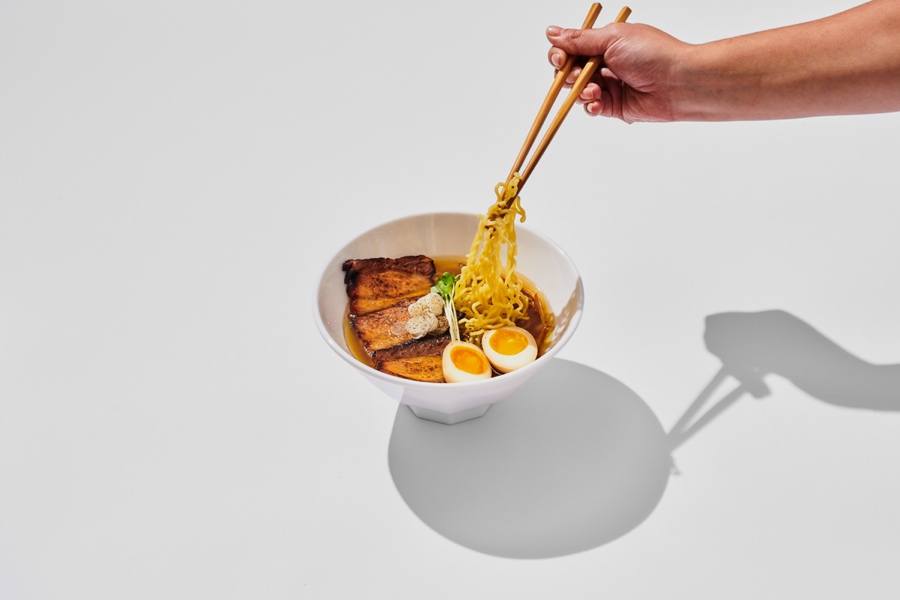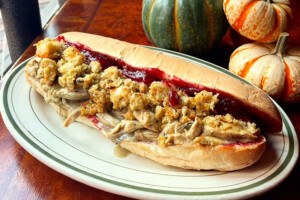Why Philly’s Hot New Ramen Spot Doesn’t Let You Take It To Go
Neighborhood Ramen wants your noodles to be just as fresh and delicious as when they first hit the broth — which means no takeout and no doggy bags, just like in Japan.
Neighborhood Ramen owners Lindsay Steigerwald and Jesse Pryor did their research. Before opening the brick-and-mortar location of their cult favorite ramen pop-up last week, the couple traveled the country sipping broth and slurping noodles at acclaimed ramen shops in cities like New York, Boston, Los Angeles, Honolulu, and San Francisco.
They also spent a few weeks eating their way through bowls throughout Japan, seeking inspiration not only for the styles they’d serve, but also for what they wanted their Queen Village shop to be: a casual, quick-serve spot with scratch-made broths and quality noodles that would bring the best of Japanese ramen culture to Philly.
But one Japanese ramen tradition might pose a bit of a learning curve for Americans: at Japanese ramen shops, doggy bags simply aren’t done — which means that asking for your remaining noodles and broth to be packed up for tomorrow’s lunch isn’t an option.
“We’re trying to make our shop as true to a Japanese ramen shop as we can, and that’s just not a thing there,” Steigerwald says. “People go, enjoy their food, and they leave.”
The reason? A bowl of ramen is defined by its noodles, and once it’s been lovingly assembled by the chef, the clock is ticking in terms of freshness and quality. At some Japanese ramen shops, noodles are only considered truly fresh for the first five minutes they’re in the broth, so you’d better start slurping before they transform from a pleasantly al dente dish to a mushy missed opportunity.
https://www.instagram.com/p/BtEq7Uthypj/
The same rationale explains why the shop is eat-in only: not offering doggy bags closes the loophole that would allow customers to over-order to have extra ramen to bring home and eat in inferior conditions later.
While a restaurant that doesn’t offer doggy bags might raise eyebrows in Philly, Pryor points out that some New York ramen shops do it this way, with signage to inform diners (he and Steigerwald have a sign of their own up on the shop’s door).
There are other logistical benefits to eschewing takeout and bagging up leftovers, too. The restaurant spends less money on packaging, which keeps costs and prices down, and they don’t need to make room in the kitchen, where space is at a premium, to store it. Eschewing quart containers and bags also means the restaurant generates less plastic waste. And staff can focus on getting orders out and clearing tables, which makes service speedier for customers.
“The cultural significance is the driving force for us, but those factors make it even more important,” Steigerwald said.



